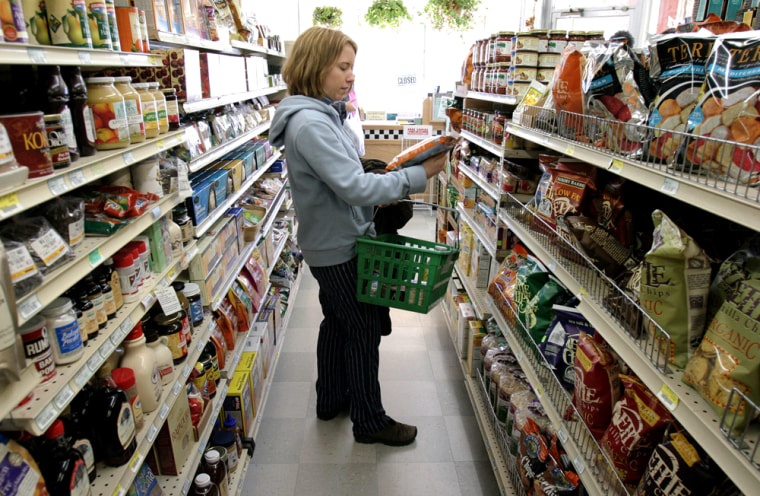A far cry from the farmers' markets and food co-op's of years ago, organic products are now marketed in major supermarkets across the country, and the industry is enjoying double-digit annual growth.
When most consumers think of organic food, dry, boxed cereals or turkey bacon are most likely to come to mind. But the category now includes foods like wine — or even caviar. Thanks to mass marketing and health-conscious consumers who favor foods without synthetic herbicides, pesticides or hormones, organic has arrived. Just digest last year's harvest.
Organic food sales at the retail level totaled $10.4 billion, according to Katherine DiMatteo, executive director of the Organic Trade Association
This year, retail sales of organic foods are expected to exceed $15 billion — with more than $32 billion projected by 2009. While the conventional food industry still dwarfs the organic sector with $550 billion in yearly sales, it is producing an unappetizing 2 to 3 percent annual growth rate, while the organic industry has savored several years of 17 to 20 percent growth.
“Once you have Kraft marketing an organic product, albeit through another brand, you really can't be more part of the mainstream than that,” said Don Montuori, editor of Packaged Facts, an industry publication.
Kraft owns Boca Burgers, and other mainstream food companies and supermarkets want a piece of the organic pie. Other big players are going organic, including Coca-Cola, which bought Odwalla natural beverages, and General Mills, which has Cascadian Farm. Wal-Mart and Costco are now among the 700 U.S. companies selling organic as well as conventional food products.
All this competition means organic prices have dropped — often to the same levels as conventional food. But you can still drop $65 on an 18-pound organic turkey.
The organic industry is big and still growing. The newest Whole Foods Market in New York city is more Costco-sized than Manhattan cramped — it boasts 60,000 square feet. The $4 billion-a-year organic food giant is poised to get even bigger on the national level, riding — if not leading — the wave of the organic boom.
“Organic is just plain better for you,” said Nina Rothschild, on a recent shopping trip. “So I feel that I'm doing the right thing.”
Consumers can expect to see the mass marketing of organic foods, drinks and other products to continue, especially in everyday supermarkets. Supermarkets accounted for 37 percent of organic sales last year, and they're also eliminating obstacles to wider market penetration — including price, quality and distribution.
